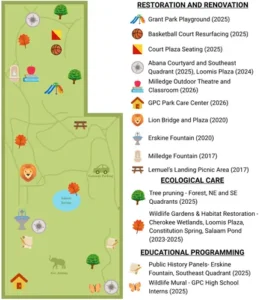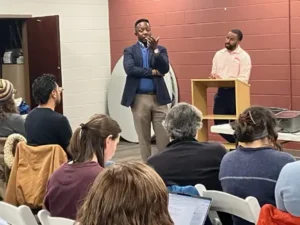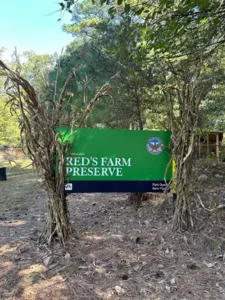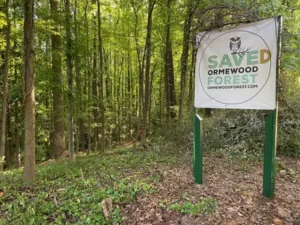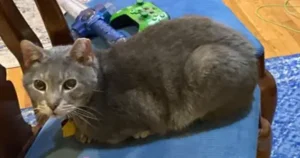By Paul Bolster
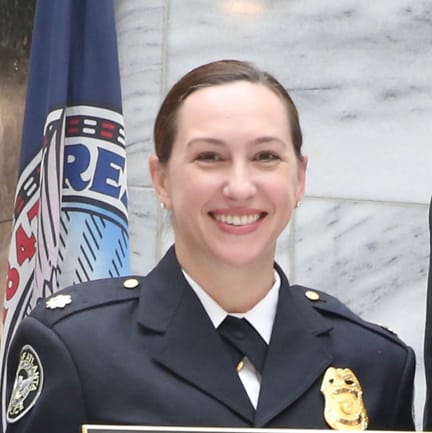
At age 20, she had a desk job in a Florida beach town. The town’s main businesses were hospitality and real estate, and she was not interested in either of those careers. When her friends got together and were doing something risky she led the way. “It occurred to me that maybe I have a brave streak and that I should be doing something other than sitting behind a desk.” She moved her family to metro Atlanta, saw an Atlanta Police Department (APD) ad, and was on patrol in Zone 3 (Northeast Atlanta) in 2003.
Now she is Zone 6 commander. Between 2013 and 2021 she quickly moved from Sergeant to Lieutenant to Captain to Major. Her official APD resume includes time as commander of the Homicide Unit, guiding the strategic crime fighting initiative, oversight of investigative units, and time as Chief of Staff in the office of the Chief of Police.
Zone 6 covers all of the Porch Press neighborhoods and a total of 20 neighborhoods on Atlanta’s east side, each with its own unique needs. Most are middle-class neighborhoods. Major Webster is pleased that violent crime in the zone is down. The most common crimes are against property, and the vast majority of those are either auto thefts or auto break-ins. The APD message is “Don’t leave your keys and your stuff in your car.” If you own a Kia or a Hyundai, the APD will give you a free steering wheel locking device since those are the most likely vehicles to be stolen.
Major Webster likes working toward systemic solutions. “When we get a 911 call, we will respond quickly, but I like officers to go back later to see if some sustainable change can prevent the next crime from happening. A security review might stop the next break in. Maybe a camera will change things.”
She has particular concerns about the rising number of homeless people. She knows the solution to homelessness has to come from broad-based efforts in the community. She believes most chronic homelessness comes from mental illness or addiction. There are not enough low-barrier shelter beds. “We call Partners for Home, but their beds are usually full, and there is not enough permanent supportive housing to meet the need. Housing is the ultimate solution.”
We asked why there are so many homeless people on the street corners looking for help. “It’s lucrative. Even when people get services, they go back out to get money.”
South Moreland Avenue Working Group (SMAWG) thinks some progress is being made toward a safer Moreland Avenue and is pleased that Mayor Webster meets regularly with the members. She has assigned more patrols to check the speed of motorists and is getting some help from the State Patrol. She is pleased that auto racers seem to have gone elsewhere.
The biggest changes Major Webster has seen in policing is the expansion of technology and the transparency it makes possible. Technology helps officers see the result of their investigation. “They all want to make a difference in their community.” If an officer takes finger prints at a crime scene they can access the case file after a shift to see the test results. Officers can find out what happened to the shell casings they turned in and can follow the reports they have made. This helps them feel they are making a difference.
How can the community help increase public safety? “Cameras on the streets are the best way to solve a crime. We need more cameras.” She encouraged citizens who have camera systems to make them available to the investigators. It’s OK to post on social medi,a but make sure you report an incident to the police. Observe the people who are walking by your house and greet them, she suggested. “There is no crime in walking by, but be on the lookout for suspicious behavior. Don’t call us to report that people are walking by your house, that a stranger has been sitting in a car too long, or that someone is wearing a heavy coat on a hot day.”
“Transparency is on the rise, and it’s going to make us better,” she declared. Major Webster is also a big advocate for neighborhood association community meetings. She sends officers to all 20 such meetings each month and to the NPU meetings. “One way to improve public safety is [for citizens] to attend these meetings and to engage with the attending officers. We learn a lot about the needs of the community from these meetings. Also, we hope body cameras are giving the public more confidence in our policing.”

